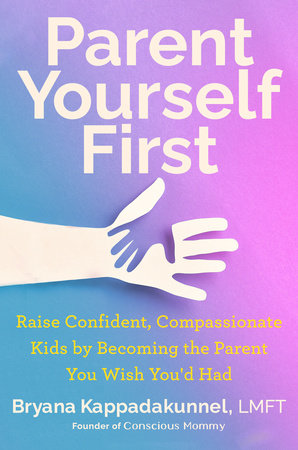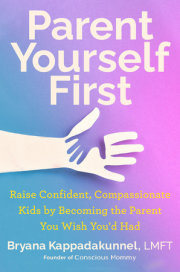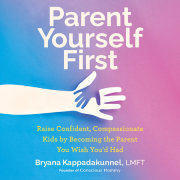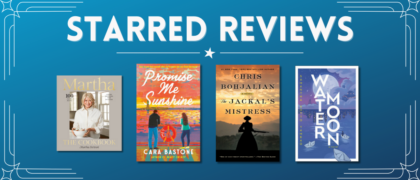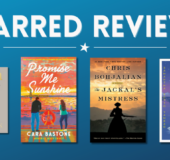Chapter 1
Say Hello to
Your Inner Child
How Your Past Shapes Your Present
Jessica believed her five-year-old daughter, Dani, was an "angry, rude kid" who couldn't make friends and never listened. Dani did what she wanted, when she wanted, and didn't seem to care about the consequences.
"I honestly question if I even like being around her," said Jessica. "Is that a terrible thing to say?"
Jessica wanted to feel close to Dani. She loved her. She just struggled to like her sometimes. It wasn't how Jessica wanted to be as a parent, but she wasn't sure how to break out of this cycle.
Shortly into our work together, Jessica revealed that, as a child, she had always struggled to feel close to her own parents. "I felt like an inconvenience to them. I even wondered sometimes why they had me," she admitted. Jessica summed up her childhood with one word: lonely. She'd thought that having a child would heal that loneliness, but now she had a child of her own and felt more alone than ever.
It was no surprise that Jessica struggled to support Dani. She was still carrying some heavy emotional baggage from her own childhood, specifically the abandonment she experienced from her parents. And it was distorting how she saw her own daughter. The more Dani embodied the anger Jessica had for years learned to repress and deny, the more Jessica found herself rejecting Dani altogether. Jessica was locked in a cycle of loneliness and shame she desperately wished she could break. But she just didn't know how.
"It's so painful to think about," Jessica admitted to me. "Not feeling wanted-that's how I felt my entire childhood. It's something I never wanted my child to feel. But I'm doing it all over again to Dani. And I'm afraid I've already done the damage." Jessica was drowning in her own fears of inadequacy, which had been sown and grown long before Dani even existed.
For things to really change with Dani, Jessica had to be willing to explore the trapped child within who felt too scared to make a fuss. She had to parent herself first, before she could be a better parent to Dani.
Listening to Your Inner Child
How you show up as a parent is influenced by your childhood experiences-both the painful and the positive. This sounds simple, but too many of us gloss over the effect our own childhood has on our parenting style today. I get it. It can be extremely challenging to look back and recall what you went through as a child, and you might find this process really difficult at times. Be gentle with yourself. You're here to break the cycles of shame and parent your children with intention and connection. This is a noble effort. No matter how tough this road may be, I want you to remember that you're built for this.
I'll talk a lot in these pages about your "inner child." What do I mean by that? Your inner child is a psychological representation of your deepest fears and anxieties, as well as your unmet childhood needs. This inner child has been listening and learning since before you were even conscious of your surroundings, and it has picked up a lot of information (some that might not even be directly known to you) about who you are and what you require. Experiences in our past inform our inner child, even as we age. Some of us have a loud, needy, demanding inner child who takes the wheel at any opportunity. Others have learned to silence our inner child altogether, only for it to rage with potentially self-destructive consequences. Our inner child is particularly loud during times of conflict and strife! But by listening to our inner child, we'll unlock truths about our own past-as well as insights about how we relate to the children in our life today.
As we work through this book, we'll learn more about how to hear and heal that inner child within us to be a better parent to the kid in front of us. It can be challenging work. Remember: be gentle with that childlike voice inside you. Just like you would never consciously reject your own child, your inner child longs (and deserves) to feel accepted for who they are.
To feel safe, your inner child requires gentleness, kindness, and compassion. We all deserve that, no matter what our age, don't we? Yet many of us have internalized a harsh, critical voice when we speak to and about ourselves, which only further demeans our inner child. Have you ever wondered why you get hung up on feeling like a failure? Chronically guilty? Perpetually unlovable? Never enough? Misunderstood? These fears are all attached to your inner child and the "wounds" you inflict upon yourself when you don't treat them with compassion. When left unexamined and unhealed, these wounds become your core inner child narrative, the unconscious story that colors how you perceive yourself and everyone around you.
Children are not born defeated and disheartened. In its pure form, the inner child is curious, observant, self-accepting, totally present, trusting, open to taking risks, unafraid of failure, persistent, and joyful. But it has been said that children are the canvas upon which parents paint their unrealized hopes and dreams, and as a result many children suffer under the weight of their parents' expectations. They lose the free spirit of the inner child and replace it with survival skills such as competition, comparison, perfectionism, people pleasing, judgment, imposter syndrome, and more.
The inner child is not a rational thinker but an emotional one. When your inner child is triggered, it's often an indication of a need that is not being adequately attended to. So, if you're feeling empty and aren't sure that your needs will be promptly met, maybe you'll get angry, anxious, or nervous. You may run away, hide, or retreat. Perhaps you'll be rendered speechless, panicked, frozen, or stuck. Maybe you'll pretend like everything is perfectly fine, but behind the facade of your smile, you're slowly withering away inside. When these patterns emerge, know that it is your inner child speaking and your wounds are asking for healing.
By the time we grow up, a lot of these patterns forged in childhood have become automatic. But by taking the time to consider the thoughts, feelings, and needs of your inner child, you'll facilitate a deeper connection with the child in front of you. By intentionally making space for your inner child, you begin to mature as an adult-and as a parent.
Practically no one gets out of childhood without inner child wounding. My client Russ had never been to therapy, and he was quick to inform me that his wife "dragged" him into my office to get help with parenting their four kids. They would misbehave, he would explode, she would cry. Wash, rinse, repeat. The cycle was exhausting and unproductive. But no one could figure out how to break out of it. When I asked Russ what I could do for him, he lowered his gaze.
"I'm not used to asking for help. So, I really don't know where to begin." Russ was a fireman and a paramedic, so his ambivalence toward receiving help made sense. As a wounded healer myself, I knew that many people with difficult pasts were drawn to the helping professions. I wondered if Russ could relate.
Russ shared that his mother had been easily overwhelmed by parenting him and his sister, and as a result she hadn't been consistently emotionally available. She had yelled a lot and often reminded him of the ways he wasn't living up to her expectations. His father had threatened him with punishments and consequences if he didn't obey, and he'd often spanked him when Russ defied him. Russ felt voiceless beneath their authoritarian control. And these patterns continued into adulthood. His parents lived nearby, and even though Russ was a husband and father himself, he still felt pressure to comply with his parents' increasingly urgent demands on his time and attention, as if he were still a child. He always did what his parents asked . . . and then found himself having a shorter and shorter fuse with his own family.
"My kids call me Scary Daddy," Russ admitted, with tears welling in the corners of his eyes. "My fear was that I would be overbearing just like my parents, and it seems I've succeeded." Russ was unconsciously repeating the patterns that were conditioned within him: he yelled when he was frustrated, and he threatened when he didn't get his way. He had broken one cycle, though. He had sworn never to hit his children, and he'd kept that promise.
Because Russ's job often required him to be away for days at a time, when he was home, he wanted his time with his family to be free from chaos. Quite an expectation for a home with four young children! He wiped his tears, then asked me for the secret to getting his kids to listen to him.
Like many parents, Russ had bought into the delusion that getting his kids to "comply" is the definition of good parenting. Maybe if they just listen, we think, that will prove that I'm not completely terrible at this whole "raising a child" thing. But then, by extension, if your kids don't behave, that means you, as a parent, are not worthy. So when Russ's four young kids got rambunctious-as all young kids do-his inner child told him that not only was he a bad dad, but he was also a bad person.
Here's the thing: it's not your child's job to confirm that you are good. It's their job to show up as themselves. And it's your job, as a fully realized adult, to meet them where they are. To do that, you must unlearn the patterns that have filled you with self-doubt and find self-acceptance. And if you didn't have parents who could show you how to do this, you have to find your way there by yourself.
How do you do that? It starts by going inward and reflecting on what your inner child is really asking for. Even as an adult, you still have an inner child, and your inner child longs to feel seen, heard, understood, and safe. Russ's inner child had been raised on the idea that to "earn" love he had to comply with his parents' wishes, no matter what they were. And he was still doing it, decades later! It had worked, in a way. When he did whatever his demanding parents asked for (even when it inconvenienced him and his family), doing so kept the peace. But at what cost? What lesson was he reinforcing with his parents-and passing down to his kids-about what it takes to feel "safe" in their family?
Russ came to me insisting that it was his children's defiance that blocked a nurturing, emotionally safe connection between them. The more he clings to this belief, the more he reenacts the familiar pattern that his children are the problem. This is what his parents had done-and continued to do-to him. Just as he internalized that he must be defective every time he asserted his own free will, his children will likely internalize that they, too, are the problem whenever they want something different than their dad.
To overcome the unconscious urges to turn his inner child problems into his kids' problems, Russ must notice that his inner child longs to feel heard and respected . . . while understanding that his kids cannot resolve that longing. Russ needs to do the work now for his inner child, who needed patience, grace, and compassion as well as nurturance, predictability, and clear boundaries. In Russ's case, that might mean setting some boundaries with his parents, not expecting them to change their behavior-and maintaining his composure when his kids start to push back on him, which is only natural as children grow up! Russ is forty-two years old and cannot expect to be the child in the family dynamic forever (even if his parents continue to see him that way!). And he definitely cannot expect his children to parent him, by asking them to manage and be responsible for his emotions. It's never a child's responsibility to parent a parent. Russ needs to heal the wounds within himself so that he can try to establish a new relational dynamic with his parents-and show up as the parent he wants to be for his kids.
When Your Inner Child Is Hurt
Modern parents are sold a myth. We're told that if we take every opportunity we can to stimulate our child's brain-dance classes! Foreign languages! Extra sports!-then our child will be superior. And if they are superior, they will live a better life.
I can promise you, despite the flash cards and aspirations, you'll have a kid who wipes their boogers on the wall at night before bed. They'll say "poo poo face" at the dinner table and think it's hilarious. They'll deal with rejection, pain, and disappointment . . . and they'll probably make some risky choices.
Our desire to control our children's lives comes from a place of fear. We are afraid that if we let go, then we might be letting go of ourselves. We cannot resist projecting our dreams and hopes onto our children. It's not wrong to want to share our love of music; it's another thing to expect our children to love music because we do. It's not wrong to want our children to enjoy a successful career; it's another thing to limit our children's vocational opportunities to only law or medicine because we believe doing so is what's best for them.
Sometimes, a child's own dreams and abilities can conflict with parental fantasies. Inner child wounding begins when children hear things like:
It's not nice for girls to act like that.
Be a big boy! You need to be tough; you don't want to look like a sissy.
Don't just lay around and be lazy. Get up and do something!
You need to tone it down. Enough with the drama!
No one is going to like you if you keep acting like that.
The inner child becomes conditioned to learn I cannot be who I feel driven to be, because it hurts too many people. I need to be who others need me to be. This is how I'll survive.
Your inner child wounding may have been more overt. Perhaps you experienced an aggressive, harsh, traumatic, or otherwise harmful upbringing. Maybe you endured corporal punishment, violence and chaos, addiction in the home, abuse and neglect, or serious mental instability. Your inner child may feel more vulnerable to stress, more reactive, or dissociative-a psychological state in which you feel frozen or shut down, as if you were mentally transported to another time and place.
Copyright © 2025 by Bryana Kappadakunnel. All rights reserved. No part of this excerpt may be reproduced or reprinted without permission in writing from the publisher.

